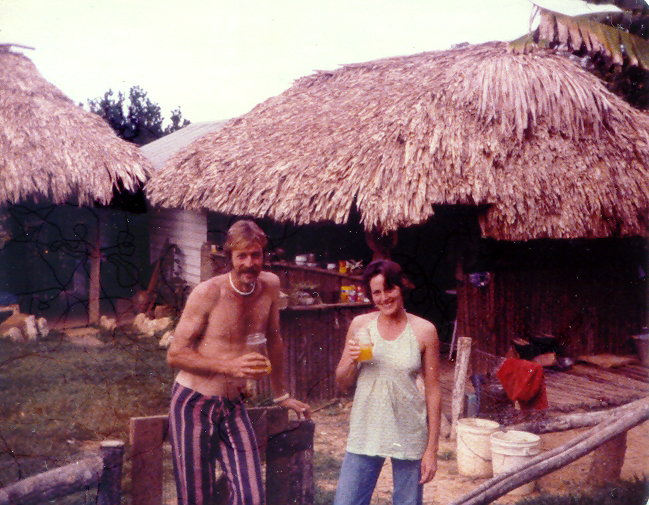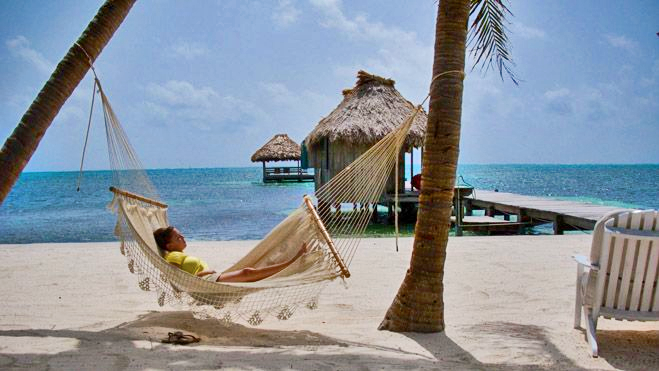By Kathleen Peddicord
Belize is the quirkiest country I know. Geographically, Belize is in Central America, yet its strongest ties are to the English-speaking Caribbean. Belize is Caribbean, Central American… and, thanks to its history as a former colony, British. Belize City’s roadways are built around a system of roundabouts, but shops alongside them sell rice, beans and tortillas still ground by hand.
Everyone you meet speaks English (it’s the country’s official language), but this belies the stories of their origins. The 350,000 people populating Belize today are descendants of migrants from Britain, yes, but also, more so, the surrounding Central American countries. You’ve got Mexicans, Guatemalans, Hondurans and Nicaraguans mixed with current-day generations of the Maya who originally inhabited this land, the pirates who came later, the Mennonite farmers who began arriving on the scene in the 16th century, the British who ruled until 1981, and each other.
It’s a country of freedom-seekers. The pirates came to ply their pirate trading out of view. The Mennonites came from Germany and the Netherlands so they could be Mennonites without anyone bothering them. The British came to do their banking in private. And the folks from the surrounding countries have made their way across Belize’s borders over the decades in search of safety.
Today a new population of freedom-seekers is finding its way to these shores — foreign retirees and others in search of a place to start over.
Belize is a nation of independent thinkers and doers, a country where you make your own way and where, while you’re doing it, no one, including the Belize government, is making any attempt to thwart your efforts. This is a poor country. The government doesn’t have enough money to get up to any real trouble. And, if they tried, the Belizeans wouldn’t allow it. The focus here is on very local-level government — addressing the crime problems in certain southern sections of Belize City, for example, or trying to dissuade the Guatemalan banditos who occasionally wander over into Belize in search of a couple of good horses to steal.
Arriving in Belize, stepping off the plane, and walking across the tarmac to the one-room arrivals hall of the airport, you have a sense of leaving the rest of the world behind. Belize and her people operate according to their own rules and mind their own business. The troubles, uncertainties and worries that seem so all-consuming Stateside and elsewhere in the world right now fade away here. You’re faced with a land that remains a frontier, undeveloped and therefore oozing potential.
 Mick and Lucy Fleming of Chaa Creek Lodge
Mick and Lucy Fleming of Chaa Creek Lodge
I traveled to Belize for the first time more than 25 years ago. On that first visit, I met Mick Fleming, a British expat who, even back then, had established himself as something of a local legend. Some years earlier, Mick had arrived in Belize City with $600 in his pocket. He met a guy in a bar who owned a piece of land in the jungle that he was interested in selling. Mick bought, thinking he’d try his luck as a farmer. The farming was tough going, but, in time, Mick identified another opportunity. Travelers were beginning to find their way to this remote region. They’d happen upon Mick and ask if he had a place where they could spend the night. Mick built a few thatched-roof cabins… then a few more… then a dining room and a bar…
I met Mick, more than a quarter-century ago, when his Chaa Creek Lodge was a humble (electricity- and hot water-free) but beautiful oasis in the rain forest. I returned as often as I could for years, but, when we traveled out to see Mick recently, I realized it’d been maybe 14 or 15 years since my last visit.
“The world has changed since we saw each other last,” Mick said during our first evening together. “We watch the news here each evening, and we know what’s going on out there. It’s not that we’ve got our heads stuck in the sand. It’s that we choose a different reality.”
Here in Belize, especially in its interior Cayo District, it doesn’t take long for any other reality you’ve brought with you to fade. In this frontier land of rivers and rain forest, your mind and your body are occupied with challenge and discovery from sunup until you fall exhausted into your bed each evening.
While much of the developed world calculates the time value of money, small Caribbean nations like Belize focus on the time value of family and friends. It takes time to cook a meal and enjoy it with loved ones; it takes time to practice music and share it at a gathering; and it takes time to nurture a crop and reap its bounty.
Belize is a sunny country that’s easily accessible from the United States and where the folks all speak English. It’s also one of the easiest places in the world to establish foreign residency, as well as a banking and a tax haven. You could live and run a business here completely tax-free. I like Belize as an offshore haven, too — a place to incorporate or to form a trust.
On the other hand, this is a small country where the infrastructure is most kindly described as “developing.” The cost of living can be affordable, even low, but not if you want to live a more “developed world” lifestyle that would mean buying lots of things not available or produced locally. Anything imported is going to come at a very inflated price.
At home in Belize’s Cayo District, the view outside your bedroom window and from your front porch would be of fields and pastures, trees and jungle, rivers and livestock. You’d see Mennonites driving horse-drawn carts and children walking home from school. Everyone going about his or her business, not much bothered by sequesters, fiscal cliffs or the mounting deficit. Here, in this land of escape, where life is simple, those things don’t seem to matter or even to register.
No infrastructure, limited services and amenities, and little market demand could be interpreted as minuses… or as pluses, depending on your perspective. In Belize, these things are a big part of the appeal. Once you get to Cayo, you don’t mind that there’s no infrastructure. You don’t mind that the culture is more concerned with conservation than consumerism.
That is, you don’t mind… or, if you do, you’re not happy. If you’re interested in a lifestyle supported by the diversions and distractions of a big city, Belize is definitely not for you. If you’re delighted by the diversions and distractions of a wide-open land where life revolves around the land and where independence and self-sufficiency are prized above all else, then, indeed, this quirky little country could be exactly the paradise you seek.

Why You Should Consider Retiring To #Belize http://t.co/tQ2J0uvV5k #Travel
Why You Should Consider Retiring To Belize http://t.co/Q5xJ8caTBd via @chaacreek
Why You Should Consider Retiring To Belize http://t.co/6aWXyMQjiS via @chaacreek